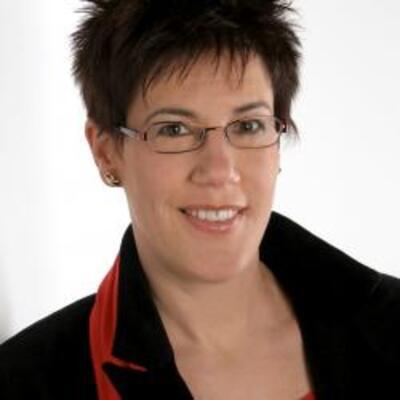Tuesday, November 19 -- 2:00 PM - 3:30 PM (GMT/UTC)
Thursday, November 21-- 6:00 am - 7:30 AM (GMT/UTC)
 Join this session of the IEA SHC Solar Academy webinar series by the IEA SHC Task 68 Subtask B on the topic of boosting the efficiency of Solar Thermal District Heating with digitalization, advanced control and open data.
Join this session of the IEA SHC Solar Academy webinar series by the IEA SHC Task 68 Subtask B on the topic of boosting the efficiency of Solar Thermal District Heating with digitalization, advanced control and open data.
One of the most important applications of solar thermal plants is their use as a heat source for district heating. This way, solar thermal solutions can contribute significantly to a sustainable heat supply – but they also face challenges, both on the single technology level (e.g. efficiently provide suitable feed-in temperatures) and on the system level (handling decentralized feed-in, effective interaction with other heat sources and with auxiliary technologies).
Digitalization offers new possibilities to address these challenges. They allow advanced monitoring of solar thermal plants, including automatic fault detection, evaluation of the performance and predictive maintenance. With a sufficient level of digitalization, advanced control concepts (e.g. model-predictive control, based on mathematical optimization) can be applied, which typically increase the performance of a plant by improving storage use and interaction with other technologies. During all stages of the plant life cycle, from concept and acquisition to planning, to construction and commissioning, to operation and finally, to refurbishment or recycling, a good data basis can speed up the process and make it more efficient. Open data is becoming increasingly relevant for such types of applications.
In this webinar, the speakers will present current market figures and trends in Solar District Heating, results and current activities from IEA SHC Task 68 – Efficient Solar District Heating Systems, specifically from Subtask B: Data preparation & utilization, with a focus on evaluation of performance, advanced control of solar district heating systems and uses of open data for solar thermal systems.
Q/A Session & Recording/Presentations: This 90-minute webinar will include a 30-minute Q/A session and a recording of the webinar as well as the presentations will be available online afterwards. The webinar is organised by the Solar Academy of the IEA Solar Heating and Cooling Programme and hosted by ISES, the International Solar Energy Society.
Recording and Presentations
Recording 2024-11-19
Recording 2024-11-21
Presenters
Philip Ohnewein
 Presentation: SunPeek Open-Source Platform for ISO 24194 Performance Analysis
Presentation: SunPeek Open-Source Platform for ISO 24194 Performance Analysis
Klaus Lichtenegger
 Dr. Klaus Lichtenegger works as Senior Researcher at BEST – Bioenergy and Sustainable Technologies, where he is works on modelling, simulation, optimization and control of trans-sectorial energy systems as well as on topic and project development; he currently leads IEA SHC Task 68 on Efficient Solar District Heating. He is also strongly involved in teaching at Universities of Applied Science, in particular topics from energy storage, mathematics, data science fundamentals, information theory, algorithmics, optimization and machine learning. In addition to his scientific publication activities, he is also author and co-author of several textbooks.
Dr. Klaus Lichtenegger works as Senior Researcher at BEST – Bioenergy and Sustainable Technologies, where he is works on modelling, simulation, optimization and control of trans-sectorial energy systems as well as on topic and project development; he currently leads IEA SHC Task 68 on Efficient Solar District Heating. He is also strongly involved in teaching at Universities of Applied Science, in particular topics from energy storage, mathematics, data science fundamentals, information theory, algorithmics, optimization and machine learning. In addition to his scientific publication activities, he is also author and co-author of several textbooks.
Presentation: Levels of Control of Solar District Heating Grids
Lukas Emberger
 Lukas Emberger is a data scientist working at SOLID Solar Energy Systems, a company specializing in large-scale solar thermal applications. SOLID plans, designs, builds, installs, and operates systems for solar process heating, cooling, hot water, space heating, and district heating as well as thermally driven cooling machines worldwide. Lukas focuses on monitoring, with a particular emphasis on fault detection, visualization, and digitalization of solar-thermal plants.
Lukas Emberger is a data scientist working at SOLID Solar Energy Systems, a company specializing in large-scale solar thermal applications. SOLID plans, designs, builds, installs, and operates systems for solar process heating, cooling, hot water, space heating, and district heating as well as thermally driven cooling machines worldwide. Lukas focuses on monitoring, with a particular emphasis on fault detection, visualization, and digitalization of solar-thermal plants.
He was involved in IEA SHC Task 55 “Integrating Large SHC Systems into DHC Networks” which was led by SOLID and is currently involved in IEA SHC Task 68 “Efficient Solar District Heating Systems” where SOLID leads Subtask B on “Data Utilization”.
Presentation: Open Data for Solar Thermal Plants: Status, Potential, and Barriers
Bärbel Epp - Moderator
 Bärbel Epp is the founder and managing director of the German consultancy solrico. She is responsible for the international newsletter of the web portal www.solarthermalworld.org, reporting exclusively about market and technology trends in the solar heating and cooling sector globally. solrico also created the first online World Map of SHIP suppliers (SHIP = Solar Heat for Industrial Processes) and carries out surveys among the around 70 companies listed on the world map annually. Bärbel Epp graduated in Physics at the University of Oldenburg, Germany.
Bärbel Epp is the founder and managing director of the German consultancy solrico. She is responsible for the international newsletter of the web portal www.solarthermalworld.org, reporting exclusively about market and technology trends in the solar heating and cooling sector globally. solrico also created the first online World Map of SHIP suppliers (SHIP = Solar Heat for Industrial Processes) and carries out surveys among the around 70 companies listed on the world map annually. Bärbel Epp graduated in Physics at the University of Oldenburg, Germany.
Presentation: Current market figures and trends in solar district heating